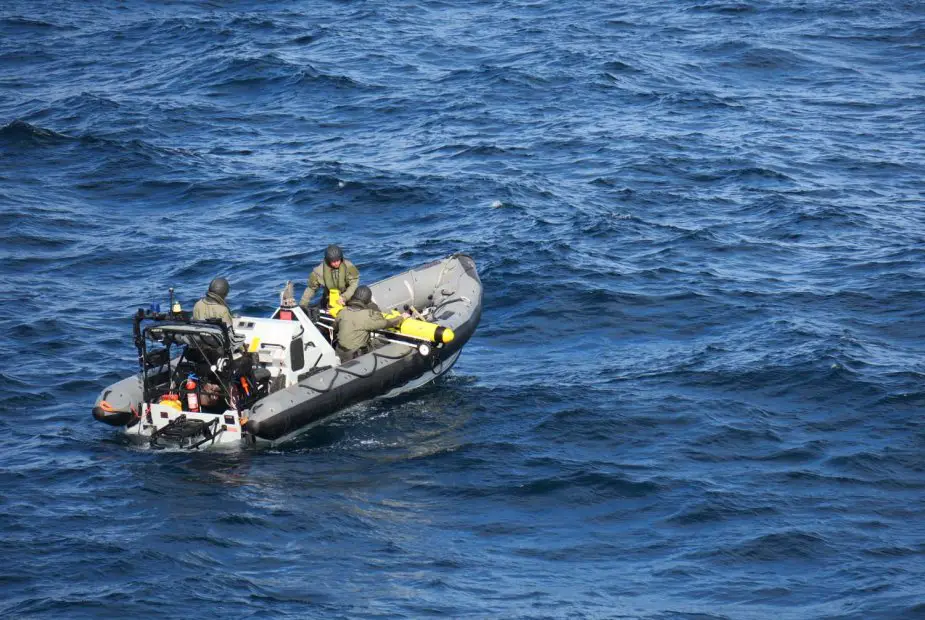Breaking news
HMS Enterprise trials underwater gliders in the North Atlantic.
The survey vessel HMS Enterprise of the Royal Navy used a Slocum Glider (named after Joshua Slocum, the first man to single-handedly sail around the world) in order to study areas of interest in the seas north of Scotland, in the North Atlantic.
 A glider has been deployed from the HMS Enterprise in the North Atlantic in order to study specific areas (Picture Source: Royal Navy)
A glider has been deployed from the HMS Enterprise in the North Atlantic in order to study specific areas (Picture Source: Royal Navy)
The glider can be programmed to patrol for weeks at a time and automatically surfaces to transmit data while downloading new instructions for missions ahead. Enterprise deployed the glider between the Outer Hebrides and the Faroe Islands and, during its ten-day outing, it studied the water column around the Wyville Thomson Ridge, a rocky plateau on the sea floor.
Throughout its submerged sorties, the glider was controlled remotely – through its online piloting technology – from nearly 700 hundred miles away by a team at the National Oceanographic Centre in Southampton.
“The Royal Navy sees oceanographic gliders as great enablers to gather real-time information, which will enable exploitation of the sub-surface,” said Captain Gary Hesling, who is in charge of the Navy's survey fleet.
“Autonomous Underwater Vehicles (AUVs), which collect through water column oceanographic data are established systems that have been used in the defence, commercial and academic arenas for a number of years.
“The information collected can then be used to validate and refine oceanographic models or be passed in near real-time to ships and units operating at sea. This critical information will enhance and optimise defence sub-surface operations.”
The glider complemented Enterprise’s work while she conducted military data gathering tasks in the Atlantic. The idea is to use the data gathered by the glider and compare it to that collected by Enterprise herself. Eventually the aim will be to deploy several gliders at once to enhance the work Enterprise and fellow Royal Navy survey vessel, HMS Echo, do.
The gliders can bring in initial dumps of information before the Royal Navy’s survey specialists can hone in on specific areas of interest to dig deeper. A big advantage of the glider is that it is able to collect data in difficult conditions at range and over a long period of time.


























